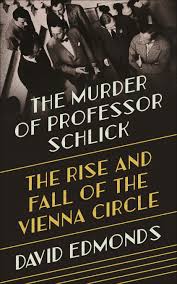Gary Saul Morson at The American Scholar:
 Austria between the world wars fostered an extraordinary number of talents in diverse fields: Sigmund Freud in psychology, Arnold Schoenberg in music, Karl Kraus in journalism, Robert Musil in literature, Gustav Klimt in art, the Bauhaus in architecture, and the “Austrian school” in economics. In some of these areas, the overriding ethos was hostility to what the Bauhaus called “ornament.” The Vienna Circle of philosophers, led by Moritz Schlick, hoped to cleanse philosophy of anything vague or, to use their favorite term of abuse, “metaphysical.” Some members also aspired to provide firm foundations for knowledge, an ambition that can be traced back to Descartes and the 17th-century rationalists.
Austria between the world wars fostered an extraordinary number of talents in diverse fields: Sigmund Freud in psychology, Arnold Schoenberg in music, Karl Kraus in journalism, Robert Musil in literature, Gustav Klimt in art, the Bauhaus in architecture, and the “Austrian school” in economics. In some of these areas, the overriding ethos was hostility to what the Bauhaus called “ornament.” The Vienna Circle of philosophers, led by Moritz Schlick, hoped to cleanse philosophy of anything vague or, to use their favorite term of abuse, “metaphysical.” Some members also aspired to provide firm foundations for knowledge, an ambition that can be traced back to Descartes and the 17th-century rationalists.
They hoped to realize this ambition by rethinking the bases of mathematics and science. As British philosopher David Edmonds points out in this informative and well-written account, by “science” the Circle philosophers meant physics because, surprisingly enough, they were ignorant of recent major innovations in biology.
more here.
